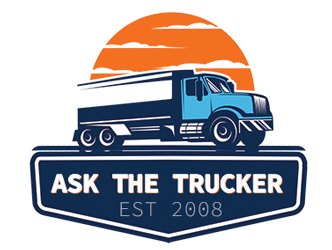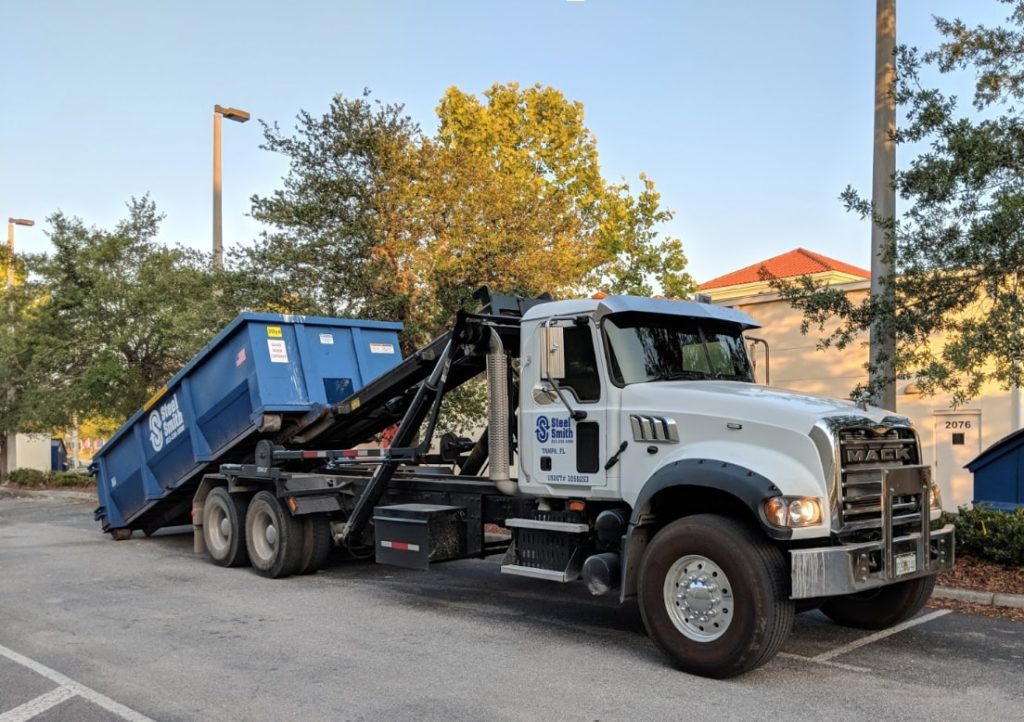What Is A Roll Off Truck Driver?
A roll off driver operates specialized trucks designed to transport waste containers to and from various locations. They play a crucial role in waste management and construction site maintenance by ensuring efficient disposal of debris.
Responsibilities and Duties
The job requires specific skills and licensing. Roll off drivers must safely maneuver their vehicles in tight spaces, properly position containers, and maintain their trucks. A CDL license is essential, along with knowledge of local traffic regulations and waste management protocols.
Roll off drivers are responsible for safely hauling and removing waste containers from customer locations. They must secure proper placement of containers during both pickup and delivery.
Key duties include:
- Operating hydraulic equipment to load and unload containers
- Inspecting vehicles before and after routes for safety issues
- Maintaining accurate records of pickups, deliveries, and disposal weights
- Ensuring proper disposal of waste materials at designated facilities
- Communicating with dispatchers about route changes or delays
- Complying with local, state, and federal regulations regarding waste transport
Drivers must also report any container damage, customer issues, or hazardous materials they encounter. They’re often responsible for basic truck maintenance and ensuring their vehicle remains in good working condition.
How Much Do Roll Off Drivers Make?
Are you looking for a career with good pay and independence? Becoming a roll off driver might be the perfect fit. These skilled professionals transport large waste containers to and from various locations throughout North America.
Roll off drivers can earn between $19-$48 per hour depending on experience and qualifications. These drivers operate heavy-duty trucks to deliver, place, and collect large open-top and compactor containers for construction sites, businesses, and residential customers.
According to Glassdoor.com, the estimated total pay for roll-off drivers averages $81,266 per year, with a base salary of about $66,453 annually.
Roll Off Trucking Requirements
Required Skills
Successful roll off drivers need a combination of technical abilities and professional skills to perform their job effectively.
Essential qualifications include:
- Commercial Driver’s License (CDL) with appropriate endorsements
- Knowledge of DOT regulations and safety procedures
- Experience operating hydraulic equipment and heavy machinery
- Physical stamina for loading/unloading activities
- Time management and route planning abilities
Important soft skills:
- Attention to detail when securing loads
- Customer service abilities for interacting with clients
- Problem-solving skills for handling unexpected situations
- Ability to work independently with minimal supervision
Most employers require a clean driving record and drug screening. Knowledge of waste management practices and materials is highly beneficial. Some positions may require additional certifications for handling specific types of waste.
Licensing and Qualifications
Becoming a roll off driver requires specific credentials, physical capabilities, and training to safely operate these specialized waste management vehicles. The qualifications ensure drivers can handle heavy equipment while maintaining safety standards on public roads.
Commercial Driver’s License (CDL)
Roll off drivers typically need a Commercial Driver’s License (CDL) to operate their vehicles legally. This requirement exists because most roll off trucks exceed the weight limits that allow operation with a standard driver’s license.
Depending on the truck’s weight rating, drivers may need either a Class A or Class B CDL. Class B is most common for roll off trucks that don’t pull trailers, while Class A is required for combination vehicles.
The CDL process includes:
- Written knowledge tests
- Skills and road tests
- Medical examination
- Background checks
Some jurisdictions may allow operation without a CDL for smaller roll off trucks, but this depends on the vehicle’s specific weight rating. Employers typically prefer candidates with CDL credentials regardless of exemptions.
Additional Certifications
Beyond the basic CDL, roll off drivers may need several endorsements and certifications to enhance their qualifications and employment opportunities.
Air brake certification is often mandatory since most roll off trucks utilize air brake systems. This requires passing a specific air brake knowledge test when obtaining the CDL.
Many employers require drivers to complete:
- OSHA safety training
- Defensive driving courses
- Equipment-specific operation training
- Hazardous materials handling certification (if applicable)
Waste management companies typically provide job-specific training on their particular roll off systems. This includes proper container pickup/delivery techniques and the hydraulic systems operation.
Professional certifications from waste management associations can also boost a driver’s credentials and demonstrate commitment to the profession.
Waste Management Knowledge
Roll-off drivers must have extensive knowledge of waste management practices to perform their jobs effectively. This includes understanding different waste categories, following strict regulations, and supporting recycling initiatives.
Types of Waste Handled
Roll-off drivers transport several types of waste materials daily. They commonly handle construction debris and waste from building sites, including concrete, wood, metal, and drywall.
Household bulk waste is another category, encompassing furniture, appliances, and yard waste that requires special disposal methods.
Common waste types handled:
- Construction and demolition debris
- Commercial waste from businesses
- Industrial waste and byproducts
- Yard waste (branches, leaves, etc.)
- Bulk household items
Drivers must recognize hazardous materials that require special handling procedures. These include chemicals, electronic waste, and contaminated materials that cannot be disposed of in standard landfills.
Understanding waste categories helps drivers ensure proper container selection and appropriate disposal methods for each load they transport.
Waste Disposal Regulations
Roll-off drivers must comply with numerous local, state, and federal regulations governing waste disposal. These regulations cover everything from transportation safety to environmental protection standards.
Drivers need a strong understanding of safety regulations and procedures specific to the waste management industry. This includes proper securing of loads and following designated routes.
Key regulatory knowledge includes:
- Department of Transportation (DOT) requirements
- Environmental Protection Agency (EPA) guidelines
- State-specific waste management laws
- Weight restrictions for trucks and disposal facilities
Proper documentation is crucial. Drivers must maintain accurate logs of all pickups and drop-offs to ensure compliance with regulations and company policies.
Awareness of restricted materials and prohibited disposal methods prevents legal violations and environmental damage.
Recycling Procedures
Modern waste management emphasizes recycling and resource recovery. Roll-off drivers play a vital role in this process by ensuring recyclable materials reach appropriate facilities rather than landfills.
Drivers must identify recyclable materials and understand how to handle them differently from general waste. This may involve transporting these materials to specialized recycling centers.
Common recycling categories include:
- Metal (steel, aluminum, copper)
- Construction materials (concrete, asphalt)
- Wood waste
- Cardboard and paper products
- Certain plastics
Drivers often assist customers in properly disposing of materials by providing guidance on sorting requirements and container selection.
Some companies like Waste Management have specific recycling protocols that drivers must follow, including separate collection routes and special handling procedures for recyclable materials.
Frequently Asked Questions
Roll-off drivers face unique challenges and requirements in their profession. Many have questions about qualifications, job descriptions, and work expectations before entering this specialized driving career.
What qualifications are required to become a roll-off driver?
Roll-off drivers typically need a Commercial Driver’s License (CDL) with appropriate endorsements. Most employers require at least 1-2 years of commercial driving experience.
A clean driving record is essential, with few or no moving violations. Physical fitness is important as the job involves operating equipment and sometimes manually adjusting containers.
Basic mechanical knowledge helps drivers troubleshoot equipment issues on the road. Many companies also require drivers to pass drug screenings and background checks.
How does the job description of a roll-off driver typically read?
Job descriptions usually emphasize safe operation of specialized roll-off trucks to deliver, place, and collect waste containers. Responsibilities include proper loading and unloading techniques for containers of various sizes.
Drivers must maintain accurate logs of pickups, deliveries, and routes. Customer service skills are mentioned as drivers interact with clients at dropoff and pickup locations.
Vehicle maintenance duties often appear, including pre-trip inspections and reporting mechanical issues. Employers also emphasize safety protocol adherence and compliance with transportation regulations.
Are there roll-off driver positions available for individuals without prior experience?
Some waste management companies offer entry-level positions with training programs for inexperienced drivers. These typically require a valid CDL but may not demand previous roll-off specific experience.
Trainee positions pair new drivers with experienced operators to learn container handling techniques. Companies may require completion of their specialized training program before independent operation.
Entry-level positions often have more supervision and restricted routes initially. Advancement to more complex routes and independence comes with demonstrated competence.
What type of license is required to operate a roll-off truck?
A Class B Commercial Driver’s License is the minimum requirement for operating roll-off trucks. Many employers prefer or require a Class A CDL for maximum flexibility.
Air brake endorsement is usually necessary since most roll-off trucks utilize air brake systems. Some positions may require additional endorsements depending on the materials transported.
Drivers must maintain their CDL with regular renewals and medical certifications. Any license suspensions or serious violations typically disqualify candidates from consideration.
How many hours per week does a roll-off driver typically work?
Roll-off drivers generally work between 40-60 hours per week, depending on route demands and company policies. Shift start times vary but often begin early in the morning, sometimes as early as 4-5 AM.
Overtime is common during busy periods or when covering additional routes. Routes are typically completed when all scheduled pickups and deliveries are finished, rather than at a fixed end time.
Many companies operate on a Monday through Friday schedule, though weekend work may be required occasionally. Federal regulations limit commercial driving hours for safety, with mandatory rest periods.

